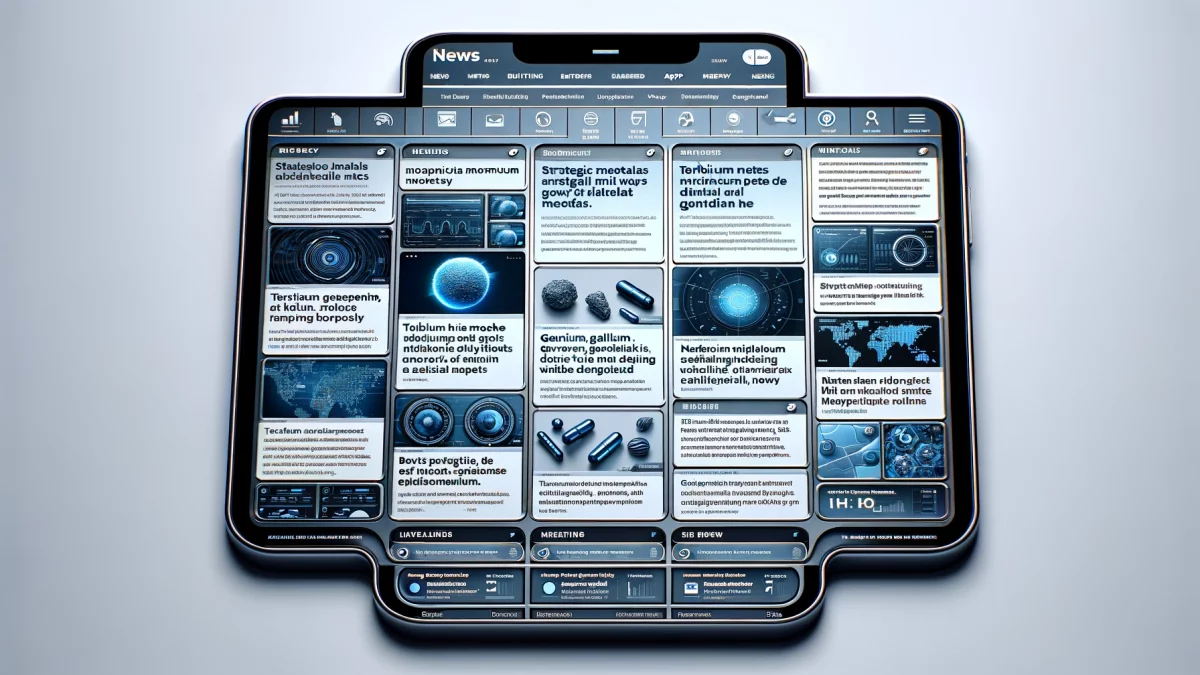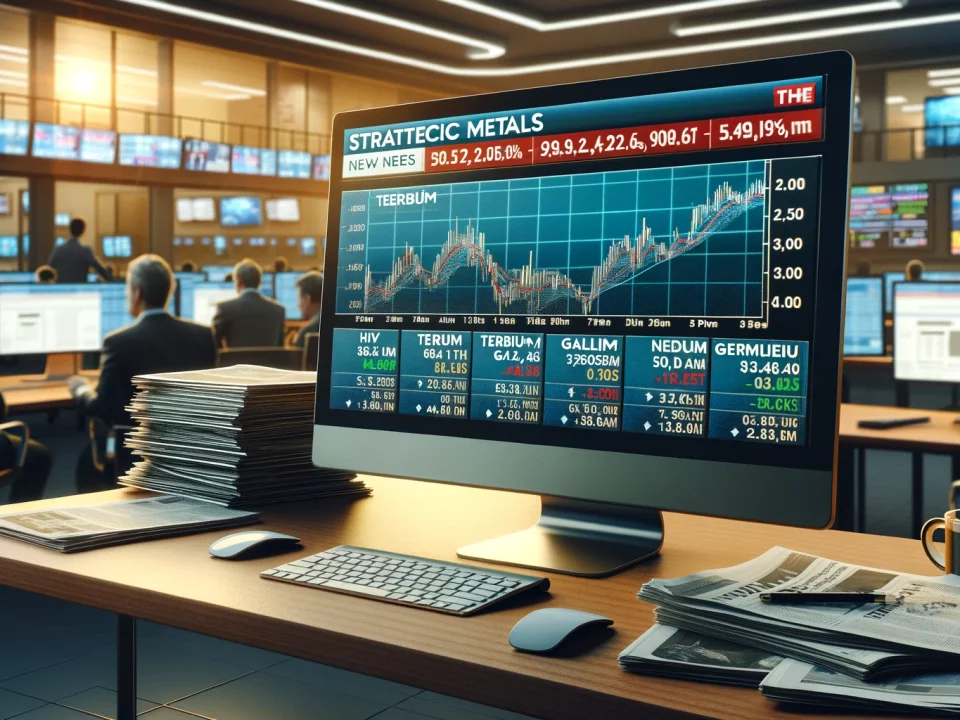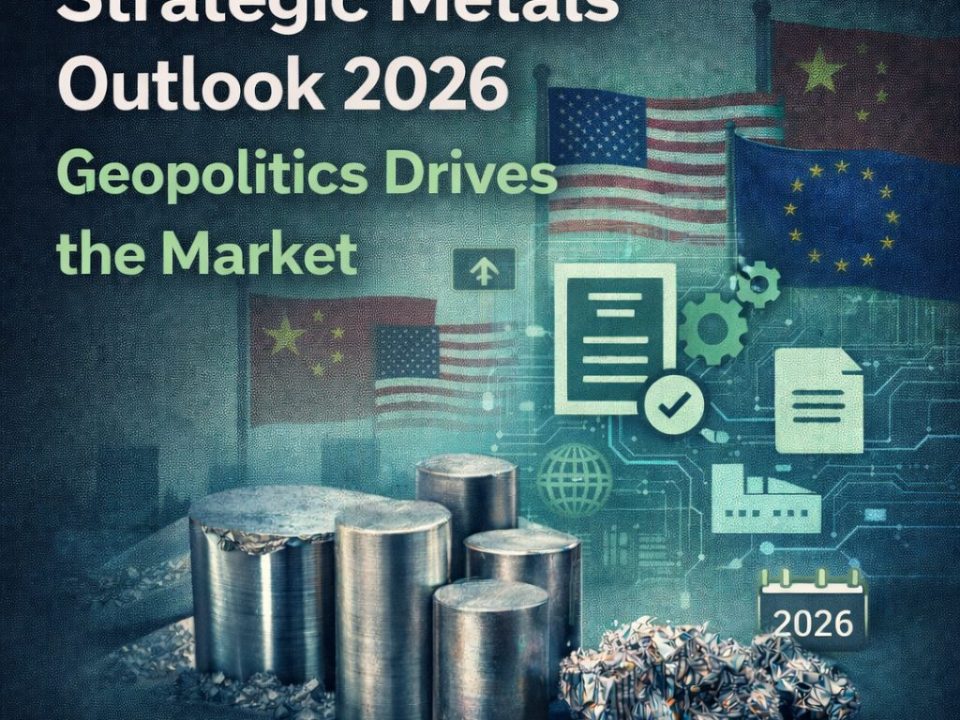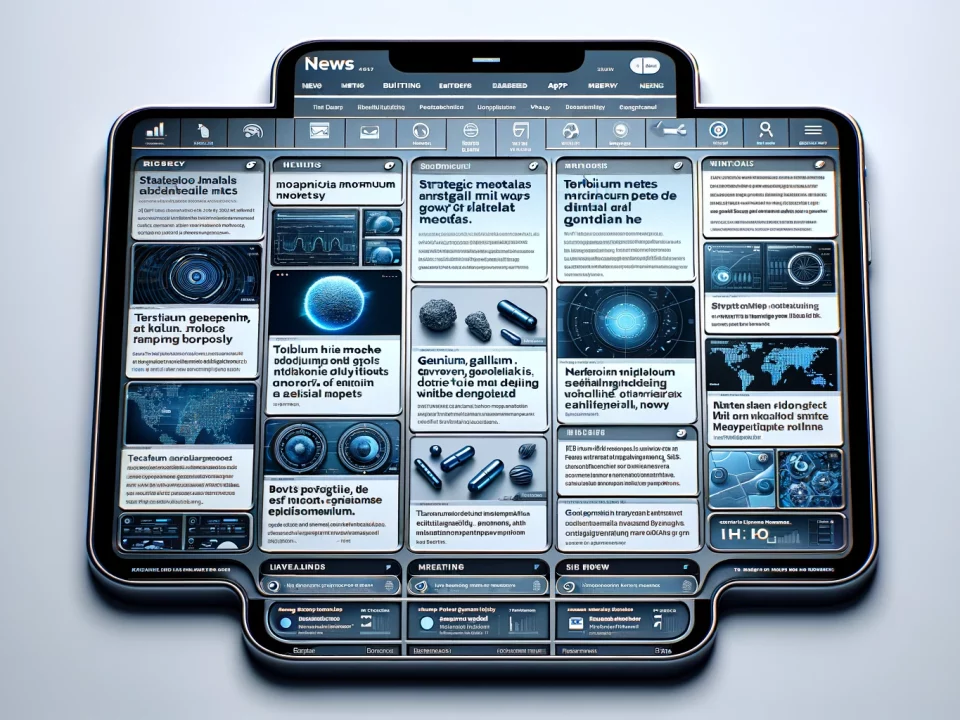
Weekly News Review July 15 – July 21 2024
July 21, 2024
Decoding the Truth Behind the Global Transition to Electric Vehicles
August 1, 2024Welcome to our weekly global news review.
USA: LEGISLATION DRAFTED TO SPEED APPROVALS FOR ENERGY AND STRATEGIC METALS PROJECTS.
In the USA, projects for renewable and conventional energies and critical minerals could benefit from an accelerated approval process in the future. After Zambia, the United States is one of the countries where the construction of new mines takes an exceptionally long time: up to 29 years, as S&P Global writes in a study.
The Chairman of the Committee on Energy and Natural Resources, Joe Manchin, presented a draft for a bipartisan bill on Monday to remedy the situation. Manchin said that the outdated system inhibits economic growth, geopolitical strength, and the ability to reduce emissions. The current legislation is a significant obstacle to investment in the USA and why the country is increasingly dependent on imports, commented the American Exploration & Mining Association.
According to The Hill, whether the bill can be passed this year is questionable, as it was published shortly before lawmakers leave Washington for the August recess. The hot phase of the US presidential election will then begin in September.
AUSTRALIA: LYNAS REPORTS DECLINE IN REVENUE YET PROGRESS WITH STRATEGIC METALS.
Lynas reported its figures for the quarter ending on Tuesday, June. Compared to last year, sales revenues fell by 13 percent to 90 million US dollars. The company, which specializes in the mining and processing rare earth, attributes this to the current low price level for its products and a decline in production.
The processing plant in Kalgoorlie, Western Australia, is currently being slowly ramped up as planned, and Lynas also refers to maintenance work at its refinery in Malaysia.
Last month, the company announced that it would be expanding its product portfolio to include dysprosium and terbium. Both elements belong to the group of heavy rare earths, which until now have mainly come from China and Myanmar.
RARE EARTHS: AUSTRALIAS ARAFURA ANNOUNCES MILESTONE FOR ITS NOLANS PROJECT.
Debt financing was completed for Australia’s first combined rare earth mine and processing plant, and construction started moving closer.
In northern Australia, domestic mining company Arafura Rare Earths Limited is developing its Nolans Rare Earth Project, the country’s first combined mine and processing plant for the critical raw materials, namely neodymium-praseodymium. Another important step has now been achieved, as Arafura announced in the report for the second quarter published on Tuesday: Conditional approval has been received for the debt financing strategy of more than one billion US dollars.
The support from Australian and international credit agencies and commercial lenders underlines the geostrategic importance of Nolans in diversifying the supply chain, Managing Director Darryl Cuzzubbo said.
The final investment decision is expected by the end of the year, with construction to start immediately after that.
Arafura has already concluded purchase agreements for its products with the South Korean car manufacturers Hyundai and Kia, the US car manufacturer General Electric, and the Spanish-German wind energy company Siemens Gamesa.
Currently, most rare earths mined in Australia are processed abroad; Lynas, for example, ships its raw material to Malaysia but recently commissioned a domestic processing plant.
EU: SIGNIFICANT MORE RESEARCH AND INNOVATION NEEDED.
Fraunhofer’s study shows what is required to achieve the goals of the Critical Raw Materials Act.
With the Critical Raw Materials Act (CRMA), the European Union has enshrined raw materials supply security in law for the first time. It stipulates that by 2030, the bloc must extract ten percent of its demand for strategic raw materials, process 40 percent itself, and cover 25 percent through recycling.
However, a new study led by the Fraunhofer Institute for Systems and Innovation Research ISI shows that additional expertise and new technologies are needed to achieve these goals. The European Parliament’s Panel commissioned the study on the Future of Science and Technology STOA.
The study concludes that the EU needs to expand its strong international position in research and innovation. There is a need for research along the entire supply and value chains, from exploring raw material deposits and developing new extraction and processing methods to the circular economy and recycling. To this end, strategic, large-scale investments corresponding to other essential technologies should be considered. The expansion of monitoring and analysis capacities makes sense.
Resistance to Mining Projects: Researching Possible Conflict Solutions
In addition to technological aspects, research in the social sciences needs to be strengthened, as new mining or production projects often encounter local resistance due to environmental and social concerns. Participation processes and approaches to conflict resolution could help here.
The research team also advocates international cooperation within Europe, with the USA and Japan, but increasingly with China. This is remarkable, as the raw materials giant is the focus of Europe’s efforts to achieve greater supply chain autonomy. For example, 98 percent of rare earth magnets, which are needed for electric motors and wind turbines, among other things, come from the People’s Republic.
The study presents packages of measures and specific recommendations for these issues.
However, expanding innovation and research capacities could pose a challenge, as the EU Raw Materials Act still needs to provide additional financial resources, but instead refers to existing funding programs such as Horizon Europe or Global Gateway. Just last week, Bernd Schäfer, CEO of EIT Raw Materials, a consortium for networking industry and research, called for a dedicated fund to extract critical minerals for the European economy.
CHINA: PROMISING RARE EARTH PROJECT IN TANZANIA RECEIVES INVESTMENT FROM CHINESE GROUP.
Shenghe supports the Australian mining company Peak Rare Earths in developing its rare earth project in Tanzania and acquires shares in Ngualla.
The Australian mining company Peak Rare Earths is developing its Ngualla rare earth project in southern Tanzania. Financial and technical support will now come from the Chinese rare earth group Shenghe Resources. As Peak announced, a non-binding letter of intent has been signed to this end; in the course, Shenghe will also acquire a 50 percent stake in the British Ngualla Group UK Limited (NGUK), which holds over 80 percent of the rare earth project. Peak owns the remaining 50 percent of NGUK.
According to the statement, the Australian company will not have to provide any additional equity to develop the rare earth project, and the remaining capital costs will be funded via a Shenghe-arranged debt facility. The final investment decision is scheduled for the end of the year.
According to Peak, Ngualla is one of the largest and highest-quality deposits of neodymium and praseodymium, critical raw materials for electromobility and wind power, among other things. Huang Ping, Deputy Executive Chairman of Shenghe, also speaks of the “premier undeveloped rare earth project in the world.”
Around the World: Shenghe Involved in Numerous Rare Earth Projects –
Shenghe already holds a 19.9 percent stake in Peak and has secured the entire rare earth concentrate from Ngualla for seven years, plus at least 50 percent of the intermediate and end products from Peak Rare Earths. The Chinese group, which has already acquired other rare earth projects in Tanzania, is an essential player in the world of rare earth, including through its stake in MP Materials, the operator of the only US rare earth mine to date, Mountain Pass Mine.
Headlines were made at the end of last year by the planned sale of the raw material of Canada’s only rare earth mine to Shenghe – the Canadian government recently blocked the deal to limit China’s influence on the domestic mining industry.
GREENLAND: CRITICAL MINERALS CORP INCREASES STAKE IN RARE EARTHS PROJECT:
The company sees Tanbreez as a “game changer” for the supply of critical raw materials.
Greenland is home to several untapped deposits of rare earths. Mining them could help Europe reduce its heavy dependence on China to supply these raw materials. The Tanbreez deposit, located in the country’s south, is considered promising. According to Tanbreez Mining, around 19 million tons of rare earth oxide, including many heavy rare earths, are believed to be present here.
The company has a mining permit for the project. This has attracted the interest of US-based Critical Metals Corp, seeking a 92.5 percent stake in Tanbreez Mining. This week, the existing stake was increased from 5.55% to 42%. According to a press release, a further increase is possible, but Critical Metals would have to invest ten million US dollars in exploration over the next two years.
Tanbreez is a eudialyte deposit. This mineral has many heavy rare earths, mainly extracted from clay soils in Myanmar and China. However, the concentration of raw materials in eudialytes is comparatively low, and extraction is complex, which remains the subject of research projects.
INDIA: GOVERNMENT PLANS TO LIFT IMPORT DUTIES ON 25 CRITICAL MINERALS.
Lithium, cobalt, and rare earth, among others, are affected. The measure is intended to boost the domestic economy and accelerate the transition to clean energy.
The Indian government wants to lift import duties on 25 critical minerals, such as lithium and rare earths, which are crucial for the energy and transportation transition. The aim is to promote the processing of these raw materials and ensure their availability for essential sectors such as renewable energies and aerospace. This was announced by the country’s Finance Minister, Nirmala Sitharaman, on Tuesday at the presentation of the new budget.
In order to reduce the production costs for steel and copper, the essential customs duties for the primary products ferronickel and blister copper are also to be abolished. Reductions in customs duties on gold, silver, and platinum will increase added value in domestic jewelry production.
Promoting Domestic Mining, Recycling, and Raw Material Extraction in the Deep Sea –
India’s government also wants to set up a “mission for critical minerals” to expand their domestic production and recycling and acquire corresponding projects overseas. Mining minerals in the deep sea is another part of India’s raw materials strategy, and the first mining rights are now to be auctioned after exploration work has already been carried out.
India published its first list of critical minerals considered crucial for economic development and national security a year ago. Most of these materials are imported, but more domestic production and investment abroad are intended to help reduce dependency.
The focus here is mainly on the neighboring country of China; territorial conflicts and economic competition partly characterize the relationship with India. This year’s economic survey of India also emphasizes the risks of dependence on China and highlights the People’s Republic’s near-monopoly in producing and processing rare earths.
UNITED KINGDOM: INDIA AND THE UK TO WORK TOGETHER TO STRENGTHEN COOPERATION IN STRATEGIC METALS AND TECHNOLOGY.
Government representatives agree to work more closely in strategic sectors such as rare earths and renewable energies.
Semiconductors, critical minerals, artificial intelligence: India and the United Kingdom want to strengthen their cooperation in certain technologies crucial for national security and economic development. To this end, the two countries have established the new UK-India Technology Security Initiative, according to the Indian government.
This came after the new British Foreign Secretary David Lammy’s first state visit to India, where he met with Prime Minister Narendra Modi and other government representatives.
Specifically, the two countries want – among other things – to boost their existing partnerships in offshore wind turbines and green hydrogen to tackle climate change. Establishing a joint recycling center in India is being considered in the area of critical minerals such as lithium and rare earths, which are required for numerous green technologies.
The two national geological services also want to work more closely together to improve exploration methods for rare earths. In addition, bilateral research and development of high-tech materials such as graphene will be intensified.
As an emerging economic power and now the world’s most populous country, India has recently endeavored to improve its raw material supply and reduce import dependence. Domestic mining and overseas investment are central pillars of this strategy. Raw materials and technology partnerships are also being expanded; for example, the subcontinent signed a cooperation agreement with the USA in June, similar to that with the United Kingdom. Just this week, the announcement that import duties on 25 critical raw materials would be lifted also made headlines.
For its part, the United Kingdom published its first raw materials security strategy two years ago and updated it just a few months later. In addition to exploring domestic raw material deposits and investment in foreign mineral projects, recycling plays an important role in supply chain security.
CANADA: RARE EARTHS COOPERATION.
The Canadian companies Cyclic and Ucore join forces to strengthen domestic supply chains by integrating recycled raw materials.
Canadian rare earth recycler Cyclic Materials plans to provide raw materials to Ucore Rare Metals, a company specializing in developing North American supply chains for rare earth. Ucore announced signing a Memorandum of Understanding for the supply of recycled mixed rare earth oxide.
Initially, trial quantities will be delivered to Ucore’s demonstration plant in Kingston, Canada, where a self-developed method for separating rare earth elements is being tested. Cyclic’s demonstration plant is located in the immediate neighborhood. The long-term goal is to integrate recycled raw materials into future domestic value chains.
Based on its pilot plant, Ucore is building a facility to separate rare earths in the US state of Louisiana. It is also developing the Bokan Mountain deposit in Alaska, which contains coveted heavy rare earths such as dysprosium. The Canadian and US governments partly support the company’s projects.
The mining and processing of rare earths, which are required for numerous green and digital technologies, is mainly done in China. Given rising geopolitical tensions, Western powers have endeavored for years to reduce their dependence on imports. In addition to domestic mining and the establishment of processing capacities, recycling is playing an increasingly important role.
Recent collaborations with well-known European players along the value chain, such as Vacuumschmelze and Solvay, show just how much demand there is for Cyclic’s products.






